“Civil Society Needs To Be Born From Within!”
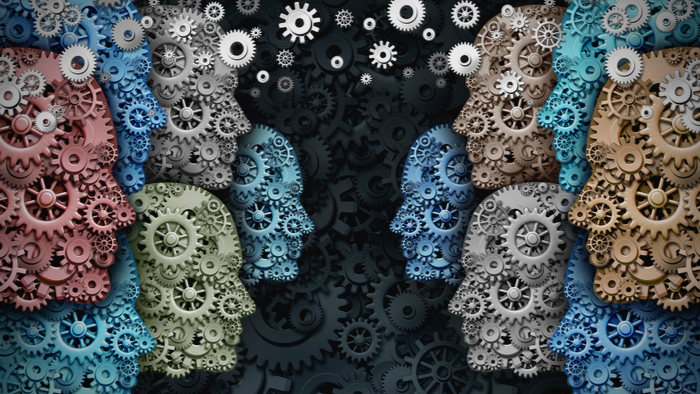
In our file called Pioneers of Civil Society, we talked to Sunay Demircan, the Founding Member and former Chairman of the Civil Society Development Center (STGM) and the member of the Board of Nature Conservation Center this week. Demircan shared with Sivil Sayfalar what he had accumulated from his activities, experiences and observations with local NGOs in various regions of Turkey, as well as corporate-level organizations such as WWF and STGM with a holistic perspective.”
Sunay Demircan stating that the change and the division of human beings with nature and human beings, politically, civil and economically and making it necessary for change and transformation (developing a different approach) in the civil field as in other fields, says that NGOs starting to talk to each other outside of their work areas, will be the first step to make this transformation possible.
How do you define yourself in civil society?
I don’t attribute an adjective to myself. An identification requires categorization. You make it meaningful within a limit. It brings marginalization and distinction. I think this definition and distinction are the reason why the world and the civil society have become this… Therefore, I do not want to make a definition. I am a person who thinks and works in the Civil field and in many areas.
Why did you choose a civilian area?
I was living in the Bafra District in Samsun and observing birds in my 20s. The institution we know today as WWF was then the Society for the Protection of Nature (DHKD). I met them in 1991. They wanted to start a wetland conservation and management project in the Kızılırmak Delta and they offered me to work together. I resigned my job and joined the DHKD with a great excitement. I worked on projects related to wetlands and water resources of Turkey for about 10 years until 2001.
Then, I was assigned under GAP Administration for about two years. In 2002, the European Union Commission decided to develop grant programs for the civil society with the acceleration of Turkey’s candidacy process and launched the Civil Society Development Program (STGP) in 2002. I was the team leader of the program and Grant and capacity building programs for NGOs were initiated under the STGP. The project was very successful. The EU Commission told us “you carry out the continuation of this in a civil structure.” So in 2004, the Center for Civil Society Development (STGM) was established and I was one of the founders. STGM became active in 2005. I was the director at STGM until 2008. Things were going well at STGM but I felt a problem at some point.
NGO’s Should Not Be Stuck In The Project Cycle
What kind of a problem?
Obviously, I’ve seen problems with the format that exists but I don’t want this to be misunderstood. What I want to say is that the current format is based on project preparation. This is the Project Cycle format, the Logical Framework Matrix. A strategic plan needs to be prepared in addition to this. I trained around 3 thousand 600 people all over Turkey in this format. One day I realized that project cycle management eliminates the civil spirit in a society, a synthetic hierarchical system of thought is adopted and the mind is turned into a robot there. This robot spends the rest of its life working on the project.
Because of this logic, the NGO, condemned to the keyboard at the table, is moving away from recognizing the target group and the problem. The main concern of the organization entering this cycle is to develop projects and earn money (which we call “Resource Development” in the literature). He’s got to do it, because if he can’t earn money, how will he pay the rent for the office? Salaries, fixed expenses… The organizations hardly cover even tea money with the support of our members. He has to write projects all the time. Before one ends, a new one starts… An endless marathon.
Actually, the armies are the ones that brought this project preparation logic into the world. There’s a military origin and order involved. Logical frame matrix is a method used in the military. All ancient civilizations were created by the armies and then armies prepared their strategic plans for operations. Now even the organization, which emerged with anti-militarist intent, develops a strategy with the logic of the army and establishes “order”. They etched this systematic, which I call order, into our minds saying ”This is how it is.” From its language, to its logic, to its behavior patterns… A form of existence has been created in the civil space. This has been the case for the whole world, don’t get me wrong, my concern is not only for us.
So we transferred this mentality to the civilian area. I don’t want to blame anyone and I’m not one of those people looking for some conspiracy theories. I am also aware that I put butter on the bread of those like but a little thought is required in order to evaluate what I have said. Anyway, one day, I realized that this is not working in the civil society. In the logic of project management, we construct the project based on the cause-and-effect relation. But there are so many different parameters in the civil environment and these parameters are so many and constantly changing that it is a living system that experiences the problem… You freeze the analysis with the logic of the project at that moment, whereas the problem is dynamic, flowing and constantly changing. A different approach needs to be developed: In civil society, it is necessary to get out of the view that stagnates/freezes this situation and disassembles it and seeks the problem and the solution in parts. As long as we can’t get out, we’re trapped in this cycle.
What activities are you currently conducting in a civil society?
As I said, while I was living a very peaceful and happy life at STGM, I quit my job and went to a village. The village in which I was born and raised and in which I first started to work at DHKD. To the Kızılırmak Basin. My wife, Bilgi Buluş, and I farmed for 11 years in the village. By the way, we couldn’t cut off our relation with the civil society. I’ve tried to give outside volunteer support to the autism organizations. I’m still working with them… We’ve been working locally to protect the Delta.…
While living in the village, I also started to work as a consultant in the fields of social investment/rural development in Baku-Tbilisi – Ceyhan (BTC) Oil Pipeline and TANAP Natural Gas Pipeline projects. Of course, these are very large construction projects, creating social and environmental impacts in the places they go. Both projects pass through hundreds of villages in Anatolia and I have had the opportunity to work with people in the rural areas from Ardahan to Edirne for many years. If someone asks “How the civil society in the rural and small settlements is?”, I have a chance to say “I know”.
What did working with various NGOs in different cities of Turkey show you?
In my opinion, the most striking development is this: Anatolia is emptied. The countryside empties and they migrate to the city. Some provinces, Sivas, Kars, Ardahan, Kırıkkale, Yozgat… The countryside is almost empty. As we approach to the West, the population increases in the cities that receive migration. Bursa, İstanbul, Adana, Hatay, Mersin receive a lot of migration.
Elderly and disabled people and patients remain in the villages of migrating cities. These have moved away from the production. The production in the countryside is not efficient. Currently, the rural population in Turkey is said to be 7% but this will fall even further. With these demographic movements, the countryside will be empty in the future. What is called agriculture will disappear and industrial agriculture will gain weight. Big businesses will gain strength. This is an ongoing change (the evacuation of the countryside in Anatolia) and it will increase further in the coming years. Of course, this movement has many consequences. The effect in the vacant areas is to one side, the filled ones to the other, the civilian effect to the one side, the state of the public authority to the other… Social, political, economic… It is necessary to foresee and take precautions that the whole structural setup will be affected by this movement.
Change of human relationship with nature and disintegration of Civil Space
What does it mean?
Man’s relationship with nature and man’s relationship with Man are changing. In fact, a person’s relationship with knowledge is changing. This change is also inevitably magnifying many large and small social cracks. I mean, I think that in every area I just said, divisions / separations in social, politic and economic will be experienced increasingly. The civil space which fragmented increasingly, is undoubtedly a dangerous situation. If you ask “Why is it dangerous?”, look, these years are a period of strong winds of change all over the world in all areas.
The values of the past are changing so rapidly and strongly that these changes can create nightmare scenarios for the countries like us trying to create their future fiction with the values of the past.
Africa will experience a population boom as a continent, and soon half of the world’s population will be in Africa. These people want to go to Europe. The Afghans, Pakistanis, Middle Easterners… The Europe no longer wants refugees but its own population is getting older. They are beginning to experience production problems, access to resources is limited, on the one hand, China is coming… While all these events are growing, Turkey is the bridge country of traffic. Neither the EU nor us can manage this. In the Civil field, we can assume that the most fundamental (perhaps the only) issue in the future, will be the refugee issue.
Apart from allowing you to make these determinations, what did civil society activities add to you?
It made me to think about what civil society is. It gave me the opportunity to see where it came from and where it went and understand people about it. We don’t know human being very well, we just pretend to know them. And we don’t know ourselves… That’s another story, of course… But people hide themselves behind a thousand masks. Those masks are endless and especially if an adventure of creating an effect from a distance is underway… too bad.
“Instead Of Looking For Resources, NGO’s Should Turn Themselves Into Resources”
How do you plan to operate in the civil area avoiding the problems you criticize?
I have an idea that I intend to bring to life. We plan to bring this idea to life with friends at STGM. I’m trying to create a guide for a holistic view of the civil society. The main idea is that an NGO is a whole with its name, with its volunteer, member, address, all the values it produces, its archive, and its works. An NGO is itself a resource. A concept “resource” that has passed from the Western world to the civic space. The English equivalent is ”fund”. So, the financial capital, money. The “resource creation” is also a term that has settled into the world of civil society as “fund raising.”
It is understood to obtain the monetary resource necessary for the sustainability of an NGO. I say, let’s change it and source is not money. I prefer to consider the concept of resource in a broader framework and I say: Resource will function as a tool for the sustainability of an NGO. It is the spring where information including all values, abstract/concrete, direct/indirect, small/big, is created.
How…? When we perceive a resource as a financial asset in its customary sense, yes, a resource is a financial value. When we perceive them as concrete, physical assets, buildings, vehicles, machines, etc. can also be considered as a resource. The collaborations, corporate value perception, produced copyrights, intellectual assets, patents, licenses, management skills and even the institution itself can be considered as abstract values. From this point of view, some characteristics such as the mission, principles, methods followed in its activities, relations with members are also values and resources.
Therefore, activities such as developing, obtaining and managing resources are for the entire institution. In other words, obtaining resources is about meaning of an NGO’s existence, commitment to its principles, focus on implementing its mission and achievements, intellectual capacity, function in collaborations and networks. As a result, I am trying to say that an NGO should change itself from being an organization seeking resources by constantly writing projects and becoming a resource themselves. An NGO that does this also sheds light on its surroundings when it becomes a source. Other NGO’s that have seen this should say “he did it” and apply it themselves. We should start with small examples.
How is it going to be? How will the process proceed?
It will start very simple. Do employees and members have common dreams about this organization? It should be checked. It is highly possible that there is not any as there is no mutual affection and acquaintance. First of all, an NGO needs to fix cooperation mechanisms within its employees. The organization must start by making a civil agreement with its internal organs. Volunteer, member, employee, director… How much does it embraces, how much is involved, how much he knows each other? If the answers to these are not very heartwarming, you should stop there anyway.
We’re trying to sculpt a sketch in our own mind with a hammer in our hands and a stone in front of us. What’s the situation with us? Our stone stands as a huge block in the middle, we have no intention of flicking it, or if we have, let’s shape someone else’s stone. We must stop it.
Starting from the simple, in-house small acquaintances, small but collective activities (such as creating an archive, preparing an institution history, visiting other similar institutions, drinking tea and providing new acquaintances, chatting.) I think we missed this conversation part too much. If there is a project and a resource, we operate under the name “dialogue”. When the project is finished, the dialogue also ends. The synthetization is at an advanced stage … We need to get our civilians out of this state and departure.
Let me give you another example. The concept of inclusion is very fashionable at the moment. If you write this in your project, you have a better chance of winning… It’s a bad joke but it’s true… Anyway, I think we need to treat this concept as inclusion, involvement. For a non-governmental organization, it should include its members, management, employees, stakeholders as well as their values/opinions/demands.
This makes it imperative to keep the boundaries of the organization constantly flexible, debatable. It directs the organization not to solidify and not to become clumsy. At least that’s the principle and the approach. We know that every new relationship established for an NGO (with member, manager, supporter, partners, etc.) confronts the institution with new values. We see this a lot, especially in civil networks, platforms, federations, etc. The organizations are closing in their own fields and developing a reflex to defend their own existence against others.
Okay… This behavior is a natural behavior of an organism but the organization also needs to develop its mind to manage this reflex, it is not managed by a reflex that is a non-governmental organization. The negotiation processes armed with transparency, flexibility and understanding are the most valuable tools in this regard and I think the ability to use these tools should develop. All this, no doubt, requires serious work, patience and experience. Of course, the roles of people in leading positions in the management of processes, are also very important.
“We Must Spread the Seeds of a Cooperative Based Order”
How did the political climate in Turkey reflect on civil society? What awaits for the civil society?
As I have just said, we exist by constantly defining ourselves and our organization with some strict boundaries. We confine ourselves to our nationality, our ideology, our faith, our gender, all our identity. Then everyone outside this castle stays outside of you and we accept them as the other. As I said this is for the individual and for the organization. I call it territorial defense behavior. When we, as individuals, construct ourselves here within limits, a fear zone emerges outside of this. In the fear and distrust, we become enemies to each other. The basis for eliminating the structure and the fear is to eliminate strict definitions… As this behavior happens to an individual, the state and civil society that are in the bloodstream similar to the individual, individual exhibits similar behaviors and takes pleasure in othering each other.
We need a new definition of civilization for the whole world beyond languages, races and religions. This does not happen with the understanding of competition over the current system based on competition. It doesn’t happen with constant success and rewarding. In the current system, being successful means leaving others behind and crushing others. Failure means falling behind and losing. Let this period end. No competition, we must spread the seeds of an order which is based on cooperation. But the problem is that the soil where we will spread these seeds is dirty. You spread the seeds of peace, water it, hoe it and feed it… There is a temporary truce coming out, if you’re lucky. Where is the peace? No peace…! Because there is no information about it, no facts, no language…. But the war has invaded us from bottom to the top. We fight against ignorance, fight against disease, fight against violence against women, fight against enemies of the environment… We express our demand for peace with war, isn’t it interesting? When the soil is like this, how can the product come out? If we leave the competition and return to cooperation, boundaries will be lifted, but as I said, if we don’t start this work from ourselves, as individuals, if we don’t reflect it on our own institution, it is not art to hammer the stone of others. It’s suffering.
Apart from these boundaries, is there any segregation in civil society such as secular NGOs and NGOs close to the government?
Of course, wouldn’t it be? It’s a very large area that we call civil society. There are organized structures and unorganized ones, faith communities, those who run dormitories, sports clubs, citizen associations… Very, very large in deed. In my opinion, the situation of being “close to the government” in the recent years is much more than before and frankly, it is very uncomfortable.
In Turkey, the government has always acted with the mentality of “if it is a non-governmental organization, I will establish this too” but nowadays it is different. On the axis of belief, the government brings together the “civilian” structures defined and appointed by the resources, promotes them as “patriotic” organizations, and leaves the others like “enemies” on the other side. Anyway, sometimes it doesn’t… In this form of relationship, there was a desire to drown in matter/being to drown in reputation within the body of inner exclusion. A right-based organization, established two years ago, has an office in a waterside residence or in an old historical building, restored and allocated to the organization. Why? Because, Ma’am, sir … They’re starting to tell the story. It’s uncomfortable … What can I say?
“Civil Society Employees Should First Talk To Each Other”
Would you advise young people to take part in a civil environment?
You have to ask it to young people. Our problem in this matter is that we want the young to come to the clumsy organized structure of our old fiction, our rules and our understanding of power, to obey us. There is no such a young person in the world. Young people do not come to civil society because they see us there. We shine brightly: a ball of people who grapple with the problem and turn into problem. The subjects discussed are always those known problems. It is the same when we go home, the same on vacation… Those problems that have covered our universe. Why should the teenager come to this universe?
What can be done?
You have to give the young people the key. Let them come, organize the office as they wish, set working hours, schedule meetings, educational content, problems… Let’s not try to make them accept our world. Now, young people do not want to be a part of these problems and spend their lives for this cause. I’m not sure how much the title of “president” will mean to them. We have to try to understand their world, their demands and their desires. In stead, we expect them to understand us. Why…? Because we know. But we’re also leaving, leaving them a dump without a shred of shame… And we’re leaving and also blaming them time to time.
How do you advise civil society employees to follow the path?
First, let civil society employees have a lot of conversations among themselves. There is no mentality of acting through a structured process, planned movement or etc. in the spirit of Turkish society. We’re not even thinking a step further. The past is more important than the future and death is more important than life. What a tragedy…! We need to change it. Let’s dream future not with the knowledge of yesterday but with the knowledge of the present. At least let’s see if this is possible. When discussing these issues, let’s call young people, even very young ones like 10-12-year-olds, let’s listen to them, let’s talk to them.
Also, I will have another suggestion, I think NGO employees should take care to have a conversation outside the problem area, outside of their job. We neglected to do so in our time.

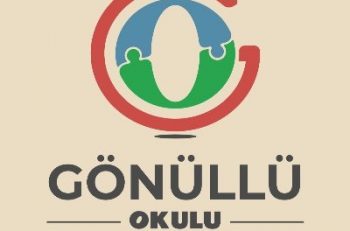
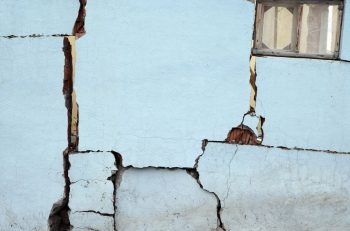

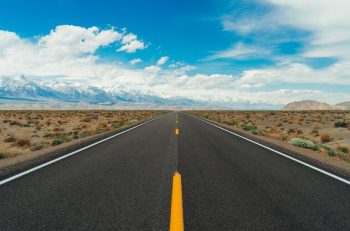

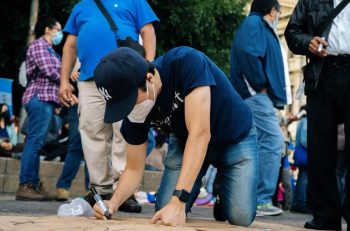
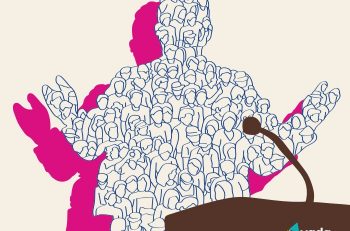
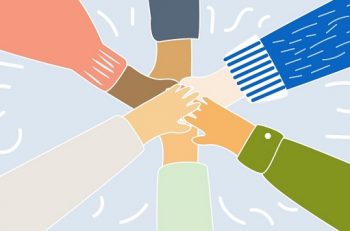
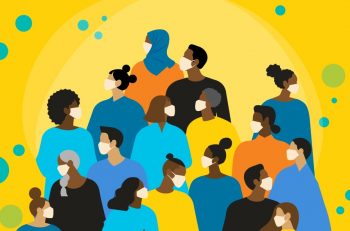
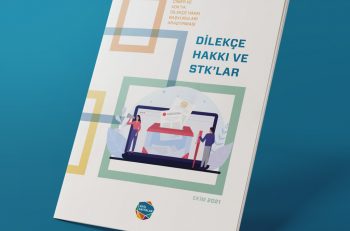
Bizi Takip Edin